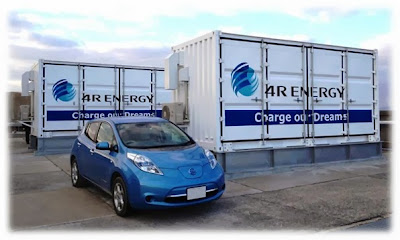ABB has announced it will enter into a partnership with Shenzhen BYD Daimler New Technology Co to supply direct-current fast chargers over the next six years.
The announcement said the agreement will result in the world's largest fast-charging network for electric vehicles.
According to the two companies, the wall-mounted chargers will have a number of innovations designed for user convenience and safety including a mobile app that allows cloud-based remote monitoring and control of charging sessions.
First deliveries are expected by the middle of the year. The chargers will be sold through BYD-Daimler's Denza dealerships along with the vehicle.
The first Denza dealership will open in Beijing and more dealerships will be built up simultaneously in Shanghai and Shenzhen.
Established in 2010 between BYD Co, a leader in China's electric vehicle industry, and German automotive icon Daimler AG, BYD-Daimler was the first joint venture in China specializing in developing and producing new-energy vehicles.
The joint venture's Denza brand launched last year will have its world premiere at Beijing auto show in April. It is slated to go on sale later this year, according to an earlier announcement.
Ulrich Spiesshofer, CEO of ABB Group, said at a news conference in Stockholm that he is confident about the deal with BYD-Daimler.
"We are honored to be a partner in this venture with BYD-Daimler to move urban transportation forward in a more sustainable way. By combining car and fast charger sales, Denza is taking a bold step to address a key obstacle for potential electric car buyers," said Spiesshofer.
"ABB's electric vehicle charging solutions have been expanding rapidly worldwide as the underlying technology combines our key strengths in power electronics, software, service and power distribution."
The fully electric Denza is designed for journeys of more than 250 km and will be among the first long-range electric vehicles on the Chinese market.
Market research shows that consumers value long drive ranges but at the same time expect short charging times.
Denza will offer its customers the convenience of charging their cars in a short time at home, at the workplace or at compatible public places, according to BYD-Daimler.
"The Denza represents a significant step in sustainable transportation for the Chinese automotive market. It was vital that we have the right partner to support this innovative concept," said Arno Roehringer, COO of BYD-Daimler.
"ABB is the ideal technology partner for us as they have proven themselves with electric vehicle chargers in China as well as globally and - equally important - the service to install it," he added.
The Chinese government adopted a GBT standard for direct-current fast charging to encourage technical innovation and stimulate market acceptance of electric vehicles.
Analysts said that urban charging infrastructure is key to widespread acceptance of electric vehicles by consumers.
The GBT standard will give Chinese consumers the option of charging their vehicles at home or in public, with DC fast charging expected to be rolled out in the near future.
Experts say China's electric vehicle market could quickly gain momentum due to technology, market innovations, the GBT national fast-charging standard and favorable incentives.
ABB has worked on pilot projects with local automakers and utilities in China since 2010. In 2013 it began to build up a local electric vehicle organization to support growth including R&D, manufacturing, logistics and services.






